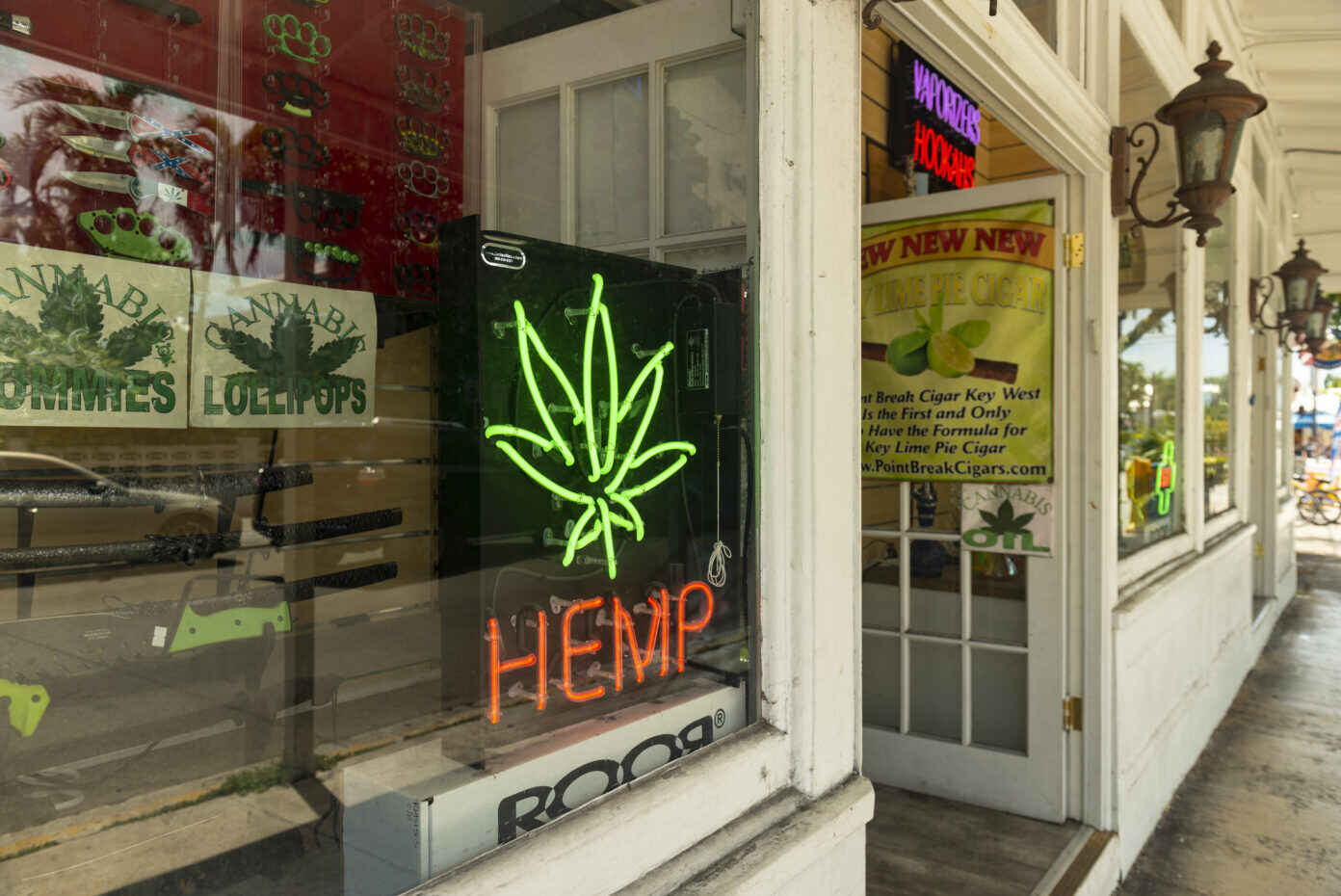Regulated Cannabis Has a Hemp Problem
October 29, 2024
Overview
In many states, hemp products are on the market without the same public health protections that govern states’ licensed cannabis markets. While the federal government ponders potential legislation and states continue to struggle in court, intoxicating hemp products continue to be sold with little oversight in many jurisdictions.

The majority of Americans (74 percent) live in a state where cannabis has been legalized for either adult-use (recreational) and/or medical use. In fact, 38 states and D.C. have legalized cannabis for medical use, while 24 states and D.C. have legalized cannabis for adult-use. With cannabis legalization, there are important public health issues that need to be addressed including youth use and access, product safety, and consumer education. To address these critical public health concerns, many states have developed a robust cannabis regulatory system that addresses issues including cannabis product advertising, product design, product packaging, product labeling, and product testing for contaminants and cannabinoid profiles. Cannabinoids are a category chemical found in the cannabis plant which includes cannabidiol (CBD) and tetrahydrocannabinol (THC). Despite the regulatory efforts to minimize the public health risks associated with cannabis legalization, many states are running into problems with hemp products. These products can look like regulated cannabis products, can be as intoxicating or more intoxicating than regulated cannabis products, and are not subject to the same public health regulations in most cases.
What is Hemp?
Hemp is a form of the Cannabis Sativa plant, the same species of plant that is used in state regulated cannabis markets. However, the hemp plant has naturally low levels of the intoxicating cannabinoid delta-9 THC. The federal government legalized hemp as an agricultural product in the 2018 Farm Bill and defined hemp and hemp-derived products as having not more than 0.3 percent delta-9 THC by dry weight. Unfortunately, this definition as applied to hemp derived products creates a public health challenge for two reasons.
First, the restriction of no more than 0.3 percent delta-9 THC by dry weight, allows for the creation of hemp products with high levels of delta-9 THC. The potency of THC is measured in milligrams with most states limiting the potency of their regulated adult-use cannabis edibles to 10mg of THC per serving and 100 mg per package. Applying the 0.3 percent by dry-weight THC restriction to 50-gram candy bar, would allow up to 150mg of hemp derived delta-9 THC to be added to the candy bar.
Second, delta-9 THC is not the only form of THC. There are several isomers of THC that have intoxicating effects, including delta-8 THC and delta-10 THC. While these isomers do not occur in significant levels in the hemp plant, they can be created from other compounds in the plant. Since the Farm Bill’s definition of hemp is silent on these other THC isomers, products with intoxicating levels of delta-8 and delta-10 THC are being sold with little oversight.
The Federal Response
When the Farm Bill legalized hemp as an agricultural product, it emphasized that the Food and Drug Administration (FDA) could use its traditional authority to regulate the products made from hemp. However, the FDA has not created specific product safety regulations for intoxicating hemp derived products. Instead, the FDA has issued dozens of warning letters to hemp companies citing them for adulterating food products and selling unapproved new drugs. In some cases, the warning letters were drafted in conjunction with the Federal Trade Commission to cite these businesses for unfair and deceptive marketing practices because their products looked like snack foods often consumed by children. In addition, the FDA has released a consumer update that warns of the risks regarding delta-8 THC hemp products. However, these reactive measures have done little to slow the sale of intoxicating hemp products.
State Efforts and Congressional Developments
In the regulatory void left by the current federal policy, states have attempted to regulate the public health risks associated with intoxicating hemp derived products. However, when states restrict or prohibit these products it has resulted in legal challenges by the hemp industry. As a result, in many states, intoxicating hemp products remain on the market without the same public health protections that govern the state’s licensed cannabis market.
While states move forward with regulatory attempts, there is recognition at the federal level that something must be done with these products. The next iteration of the Farm Bill is being developed and there is an amendment that would limit the sale of intoxicating hemp derived products by restricting the synthesis of cannabinoids. This would eliminate the issue of delta-8 and delta-10 THC products because these isomers are synthesized from other cannabinoids found in the plant.
However, some law makers feel this amendment is too restrictive and are exploring alternative approaches. U.S. Senator Ron Wyden proposed the Cannabinoid Safety and Regulation Act that would subject hemp derived products to federal safety standards including product testing and marketing restrictions. In addition, the bill would allow states to ban or further regulate hemp derived products.
While the federal government ponders potential legislation and states continue to struggle in court, intoxicating hemp products continue to be sold with little oversight in many jurisdictions.
The Network will continue to monitor this important public health issue and provide updates on important developments.
This post was written by Mathew Swinburne, Senior Advisor, Network for Public Health Law —Eastern Region.
The Network promotes public health and health equity through non-partisan educational resources and technical assistance. These materials provided are provided solely for educational purposes and do not constitute legal advice. The Network’s provision of these materials does not create an attorney-client relationship with you or any other person and is subject to the Network’s Disclaimer.
Support for the Network is provided by the Robert Wood Johnson Foundation (RWJF). The views expressed in this post do not represent the views of (and should not be attributed to) RWJF.
